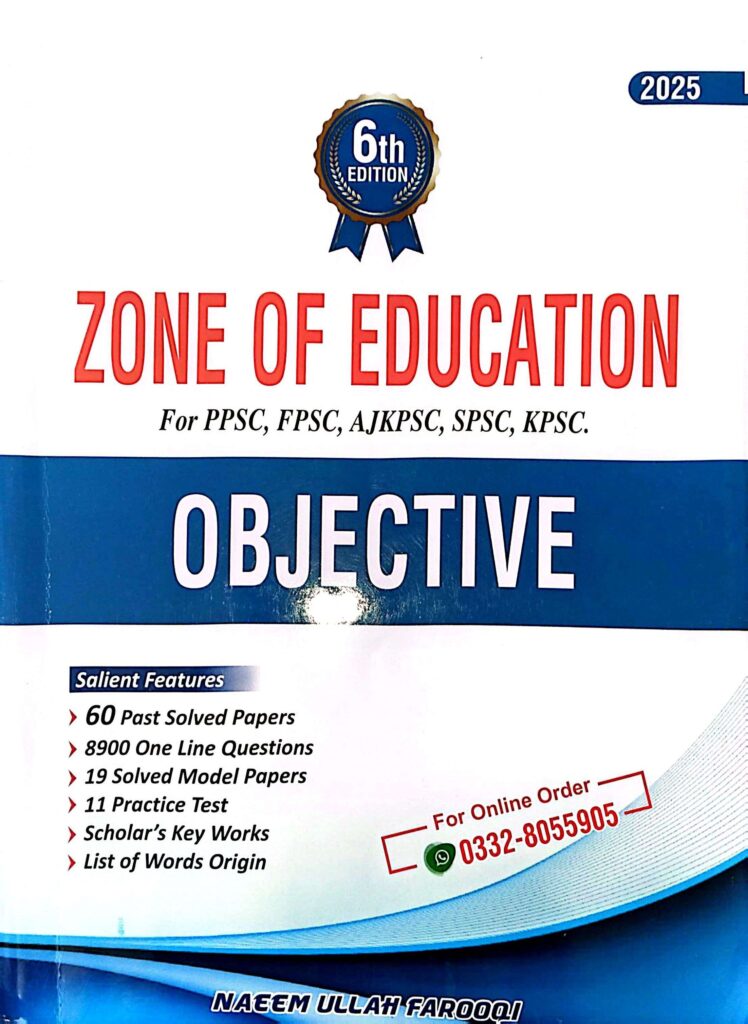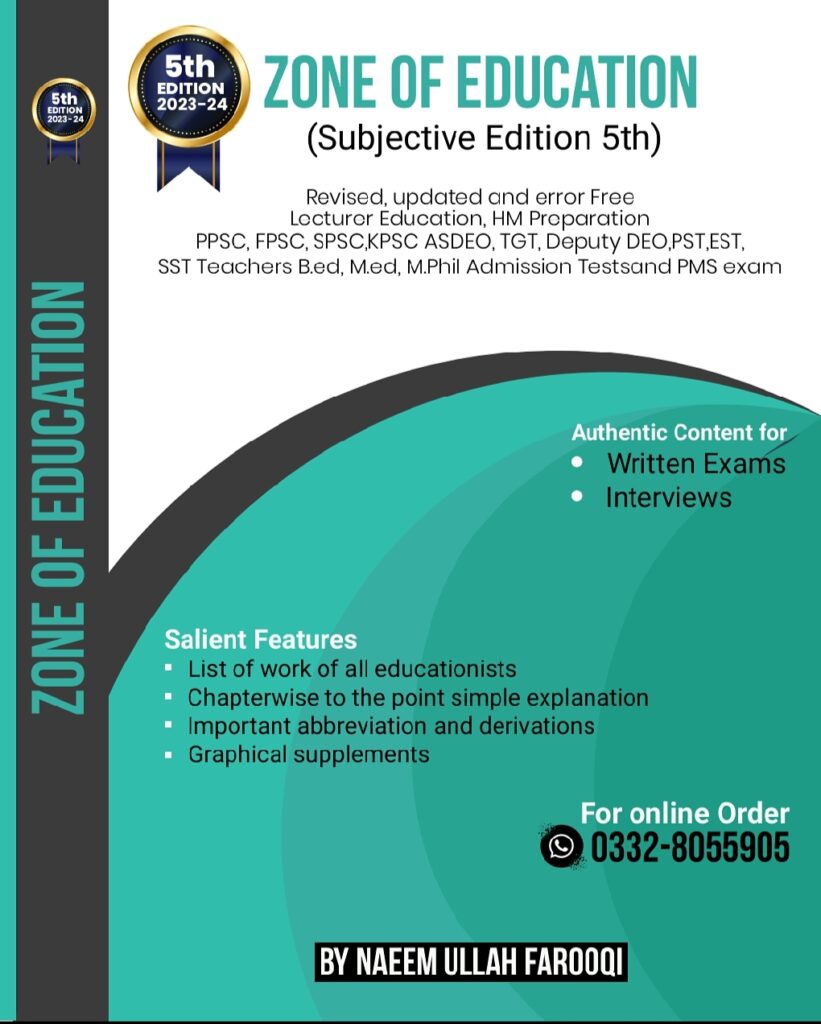History/Perspective 0f Education.
.17. By quadrivium is meant:
(a) Geometry, astronomy, rhetoric and dialectic
(b) Rhetoric, grammar, dialectic and music
(c) Grammar, geometry, music and rhetoric
(d) Arithmetic, music, astronomy and geometry
Answer: (d) Arithmetic, music, astronomy and geometry
18. The Socratic method refers to the method of:
(a) Deducing truths from revealed knowledge
(b) Employing objects in teaching vocabulary
(c) Developing concepts through questioning
(d) Teaching pupils to use their senses
Answer: (c) Developing concepts through questioning
19. Plato’s philosophy stressed education as:
(a) The function of religious bodies
(b) A means of preserving the state
(c) The development of individual differences
(d) A necessity for classless societies
Answer: (b) A means of preserving the state
20. In his educational theories, Aristotle felt that:
(a) Education should be private and vary with individuals
(b) Education should be private and be the same for all
(c) The aim in education is to train people to reason
(d) The studies pursued should have a vocational purpose
Answer: (c) The aim in education is to train people to reason
21. Aristotle’s educational plan differed from that of Plato in respect to provision for:
(a) Rigid state control of education
(b) A life of study and contemplation
(c) Making virtue a goal of education
(d) Making the home a real training center
22. The major contribution of the ancient Greeks to modern education was their:
(a) Emphasis upon the development of individual personality
(b) Subordination of the individual to the welfare of the state
(c) Stress upon physical fitness
(d) High moral and religious standards
Answer: (a) Emphasis upon the development of individual personality
23. In judging Rousseau’s naturalism, one must remember that it is based upon the idea that:
(a) The child at birth is by nature good
(b) Rousseau was opposed to social organization
(c) Education is primarily a negative process
(d) Answers a and c only
Answer: (d) Answers a and c only
24. The educational program set forth by Rousseau:
(a) Was directed toward the upper classes only
(b) Was primarily liberal rather than specialized
(c) Excluded moral, religious, and health education
(d) Answers a and b only
25. Prominence in Rousseau’s plan of education was given to:
(a) The part played by books
(b) The role played by women
(c) Ritualistic forms and religious ceremonies
(d) Physical activities and sense discrimination
Answer: (d) Physical activities and sense discrimination
26. Which of the following is true concerning the methodology of Rousseau’s educational system?
(a) Discipline was left to the natural punishment of suffering for one’s acts
(b) All instruction involved a study of the child’s abilities and interests
(c) Education was to be an unfoldment of what is within
(d) All of the above answers are correct
Answer: (d) All of the above answers are correct
27. Rousseau’s major contribution to modern education was the:
(a) Kindergarten
(b) Philanthropinum
(c) Use of objects in teaching
(d) Philosophy of naturalism
Answer: (d) Philosophy of naturalism
28. Rousseau’s influence upon education is visible in the:
(a) Educational philosophy of classical realism
(b) Attention given to languages in the curriculum
(c) Concept of permissiveness in education
(d) Model schools he set up in France
Answer: (c) Concept of permissiveness in education
29. Which of the following was not an influence of Rousseau upon education?
(a) The theory that man becomes good by being shielded from evil
(b) Feelings – emotions – are an important and active ingredient in learning
(c) Belief in allowing the child freedom to grow and make mistakes
(d) Sense and social experiences must be integrated with maturation
Answer: (a) The theory that man becomes good by being shielded from evil
30. Among the influences of Pestalozzi and Herbart upon education should be listed the:
(a) Normal school as an agency for training teachers
(b) Interjection of religion into the curriculum
(c) Substitution of child-centered for subject-centered
(d) Teaching of subject-matter through memoriter learning
Answer: (a) Normal school as an agency for training teachers
31. One of the pioneers in elementary education reform was:
(a) Benjamin Franklin
(b) DeWitt Clinton
(c) Horace Mann
(d) Johann Pestalozzi
Answer: (d) Johann Pestalozzi
32. In his educational system, Pestalozzi:
(a) Stressed the teaching of history and literature
(b) Neglected teacher preparation
(c) Aimed to regenerate society through educating the masses
(d) Felt that education of the child should start with concepts
Answer: (c) Aimed to regenerate society through educating the masses
33. The main contribution of Pestalozzi to education was the:
(a) Five formal steps in teaching
(b) Concept of universal public school education
(c) Application to education of modified naturalism
(d) Placing of education in the hands of the church
34. From Herbart, Dewey is said to have taken his:
(a) Theory of interest
(b) Theory of recapitulation
(c) Theory of the apperceptive mass
(d) Theory of learning by doing
Answer: (a) Theory of interest
35. The first kindergarten was started by:
(a) Friedrich Froebel
(b) Benjamin Franklin
(c) Johann Pestalozzi
(d) DeWitt Clinton
Answer: (a) Friedrich Froebel
36. Froebel is given credit for the idea of:
(a) The junior college
(b) The junior high school
(c) The kindergarten
(d) The evening school
Answer: (c) The kindergarten
37. Of Froebel’s idealism it can be said truthfully that:
(a) Froebel denied that education is a process of unfoldment
(b) Froebel disagreed with Hegel’s idea that education is self-realisation
(c) Froebel urged that learning unite knowing, feeling, and doing
(d) Froebel agreed with Rousseau that the value of play is physical only
Answer: (c) Froebel urged that learning unite knowing, feeling, and doing
38. Term ideology means:
(a) Science of ideas
(b) Contractive and based view of the dominant
(c) The ideas of the ruling group
(d) All of the above
39. The Muslim of India demanded Pakistan to introduce:
(a) Secular ideology
(b) Capitalistic ideology
(c) Islamic Ideology
(d) Socialistic Ideology
Answer: (c) Islamic Ideology
40. What is the basis of Islamic Civilization?
(a) Kalima
(b) Culture
(c) Economic resources
(d) Values
Answer: (a) Kalima
41. What is the source of Islamic Civilization?
(a) Arab Traditions
(b) Muslim rulers
(c) The Holy Quran
(d) Unity
Answer: (c) The Holy Quran
42. What was the result of the fear of the militant and intolerant Hindu majority in India?
(a) Hindus become a reality
(b) Muslims become a reality
(c) Sikhs become a reality
(d) Parsees become a reality
Answer: (b) Muslims become a reality
43. What is the meaning of the word Nation?
(a) Birth of race
(b) Relation
(c) Association
(d) Connection
44. What is the cornerstone of the Islamic Nation?
(a) Intellectual liberation
(b) Spiritual liberation
(c) The Kalima
(d) Zakat
Answer: (c) The Kalima
45. The Ideology of education takes its roots from:
(a) Faith and philosophy of life
(b) Knowledge and reality of life
(c) Discipline and sociology of life
(d) Unity and anthropology
Answer: (a) Faith and philosophy of life
46. The Character Building and Action in Islam is based upon:
(a) Ethics
(b) Discipline
(c) Unity
(d) Faith
Answer: (b) Discipline
Islam has given a balanced model of perfection which is in conformity to:
(a) Ability
(b) Wisdom
(c) Insight
(d) Intellect
Answer: (b) Wisdom
JOIN ZONE OF EDUCATIONPK!
Discover the most comprehensive and reliable pedagogy resources in Pakistan, curated for competitive exam success. Our content covers all competitive exam MCQs, including PPSC, FPSC, AJKPSC, SPSC, and more. Designed to empower learners with top-notch material and insights, trust us for your preparation journey!


